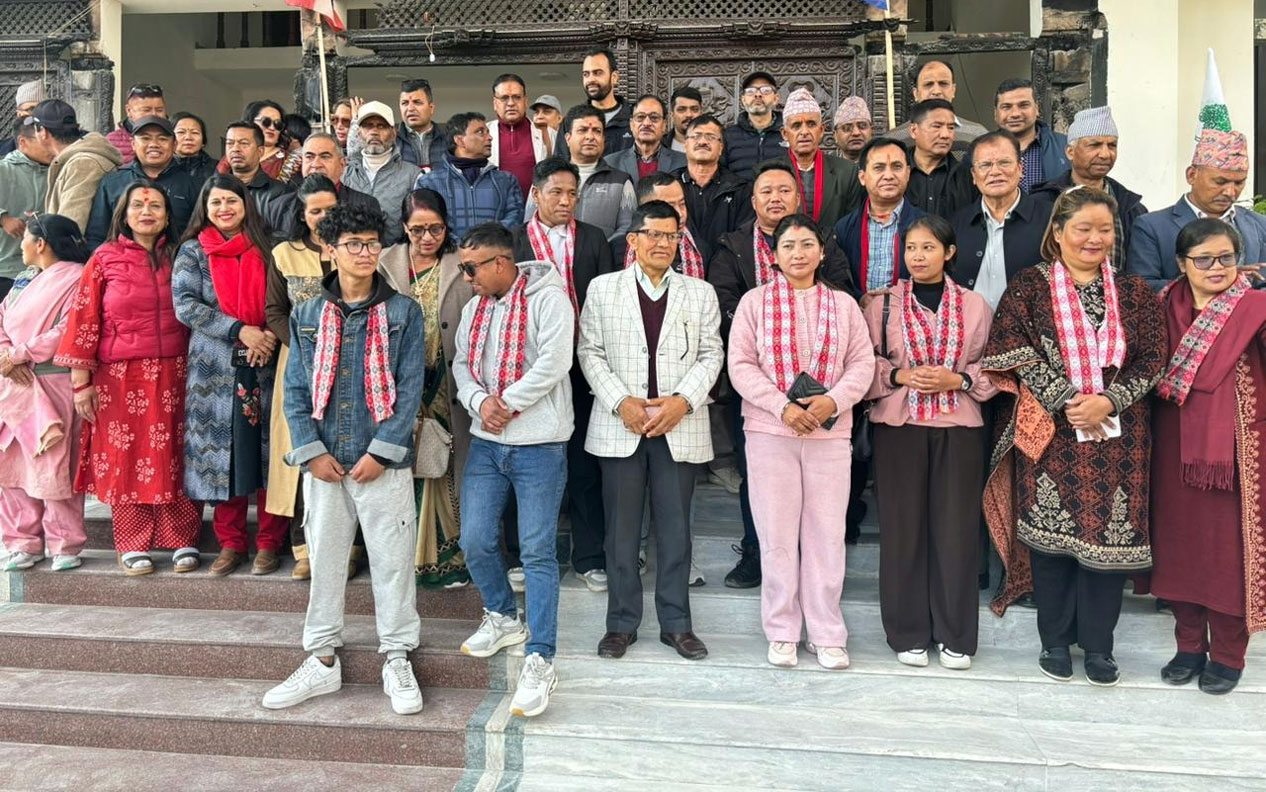

काठमाडौँ। जनता समाजवादी पार्टी (जसपा) का समानुपातिक उम्मेदवारसमेत रहेका केन्द्रीय सदस्यसहित नेताहरू नेपाली कांग्रेसमा प्रवेश गरेका छन्।
जसपा केन्द्रीय सदस्य तथा प्रतिनिधिसभा सदस्य समानुपातिक उम्मेदवार नानु थामी, केन्द्रीय सदस्य तथा समानुपातिक उम्मेद्वार सुस्मिता थापामगरसहित नेताहरू आइतबार कांग्रेसमा प्रवेश गरेका हुन्।
कांग्रेस पार्टी कार्यालय सानेपामा आइतबार उपसभापति विश्वप्रकाश शर्माले नवप्रवेशी नेताहरूलाई स्वागत गरे। थामी र थापा मगरसहित कांग्रेसमा प्रवेश गर्नेहरूमा जसपा बागमती प्रदेश सदस्य सुवास तामाङ, गण्डकी प्रदेश समिति सदस्य फुलमाया पुन, नवलपरासी जिल्ला सचिव कुलबहादुर थापा मगर, जिल्ला कोषाध्यक्ष नानीमाया महतो, जिल्ला सदस्यहरू ज्ञानेन्द्र पुन, टिकाराम माझीसहित नवलपरासीका ४२ जना जिल्ला स्तरीय नेता कार्यकर्ताहरू कांग्रेसमा प्रवेश गरेका नवप्रवेशी केन्द्रीय सदस्य तथा समानुपातिक उम्मेद्वार सुस्मिता थापामगरले बताइन्।
दोलखा–काठमाडौँ सम्पर्क समितिका अध्यक्ष गणेश थामी, तामसालिङ राष्ट्रिय समितिका केन्द्रीय सदस्य उपेन्द्र कार्की, दोलखा जिल्ला कार्यसमिति दसदस्य केशव थामी, शम्भु थामी, संघीय समाजवादी महिला महासंघकी सुशीला थामीसहित दर्जनौँ नेता कार्यकर्ता कांग्रेसमा प्रवेश गरेको कांग्रेसले जनाएको छ।
नवप्रवेशी नेताहरूलाई कांग्रेसले उचित जिम्मेवारीसहित स्वागत गरेको पार्टी प्रवक्ता देवराज चालिसेले बताए। शनिबार मात्रै सर्लाहीमा जसपाका महासचिव र लोसपाका उपाध्यक्षसहित केही कार्यकर्ता कांग्रेसमा प्रवेश गरेका थिए।